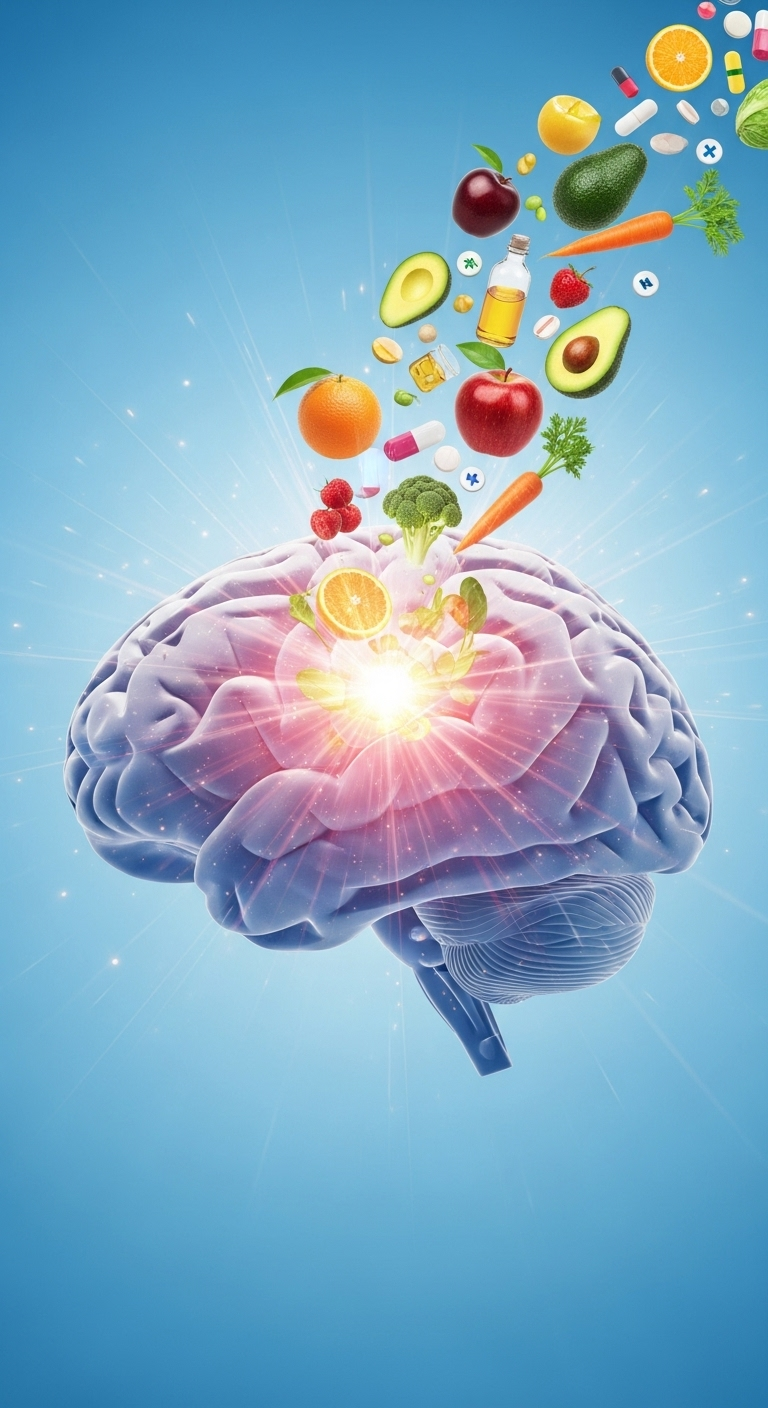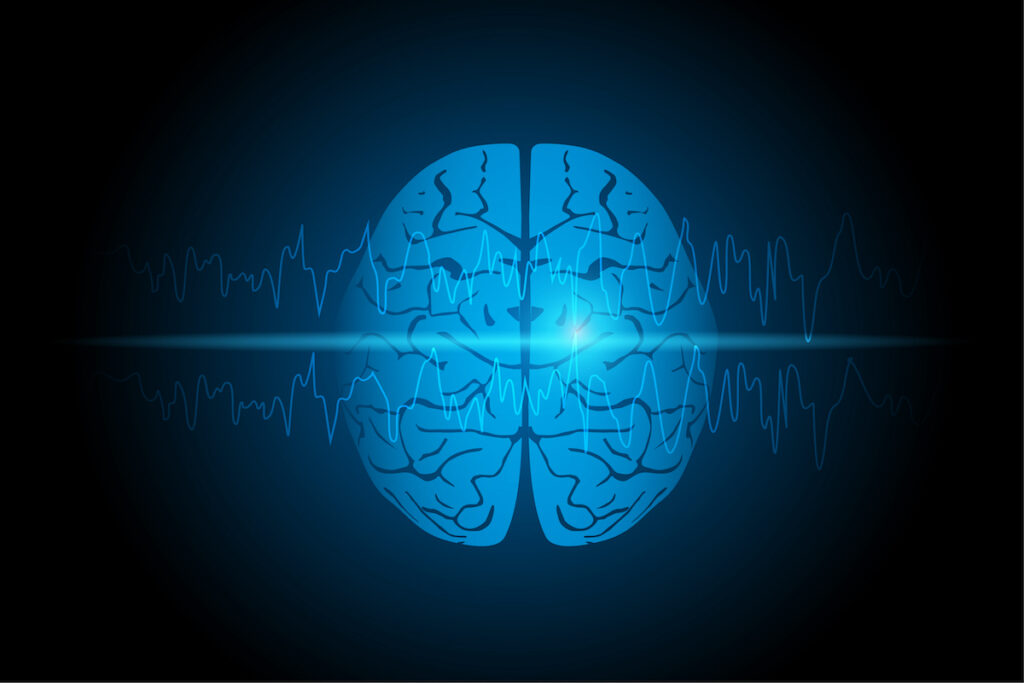
As we journey through life, maintaining mental sharpness becomes more than just a passing thought; it transforms into an essential component for embracing a fulfilling and independent existence, particularly after turning 60. While you might observe that certain memories take a little longer to retrieve or that focusing isn’t as effortless as it once was, there’s a truly encouraging message: science has unveiled numerous proven strategies to keep your mind vibrant and alert well into your golden years.
Aging is an intrinsic part of life, and though it generously bestows wisdom and experience, it can also influence our cognitive functions. It’s common to notice a gradual slowing in memory, focus, and problem-solving abilities as we grow older. However, the human brain possesses an extraordinary capacity to adapt and grow, a phenomenon known as neuroplasticity. By intentionally engaging in activities that invigorate both your mind and body, you can not only sustain but even significantly improve your cognitive health, paving the way for a more enriching and autonomous life.
In this comprehensive guide, we’ll dive deep into practical, research-backed strategies and uncover the ‘secrets’ to maintaining peak mental sharpness. Our exploration will focus on actionable advice that you can easily integrate into your daily life, helping you to foster a robust cognitive reserve and ensure your brain remains a powerful asset for years to come. Let’s embark on this enlightening journey to unlock your brain’s full potential.

1. **Eat a Brain-Boosting Diet**The food choices you make directly influence your brain’s performance and longevity. A diet that is thoughtfully curated and rich in brain-boosting nutrients can significantly enhance your memory, offer crucial protection against cognitive decline, and sustain your mental acuity as you advance in age. This isn’t merely about general health; it’s about providing your brain with the precise fuel it needs to thrive.
Integrating specific food groups into your daily routine is key. Leafy greens such as spinach, kale, and broccoli are veritable powerhouses, brimming with brain-healthy nutrients like vitamin K and a diverse array of antioxidants. These compounds play a vital role in protecting brain cells from damage and supporting overall cognitive function, making them indispensable components of a brain-healthy diet.
Furthermore, the inclusion of fatty fish like salmon, mackerel, and sardines is paramount due to their abundant supply of Omega-3 fatty acids. These essential fats are fundamental for optimal brain function and contribute directly to cognitive health, influencing everything from memory recall to mood regulation. Pairing these with berries, particularly blueberries, and nuts like walnuts, known for their memory-boosting properties, creates a formidable dietary defense for your brain.
Adding whole grains to your daily meals can also significantly strengthen both your memory and broader cognitive skills. These diverse and nutrient-rich foods work synergistically to safeguard your brain from various risk factors that are closely linked to mental decline and the detrimental effects of chronic stress. Adopting diets such as the Mediterranean, DASH, or the specifically tailored MIND diet, which emphasizes fruits, vegetables, healthy fats, and fish, can substantially reduce the risk of cognitive impairment by providing a consistent supply of these vital nutrients.
Read more about: Beyond the Search Bar: Your Ultimate Guide to Why Millions Are Hooked on the Bing Homepage Quiz Daily

2. **Ensure Adequate Hydration**Staying properly hydrated is an often-underestimated yet absolutely critical factor for maintaining optimal cognitive health. Water serves as the brain’s primary medium, facilitating essential functions by efficiently delivering vital nutrients to brain cells and effectively flushing out toxins. This continuous process is fundamental for sustained neurological activity and clarity.
Even mild dehydration can trigger a noticeable cascade of cognitive impairments. It frequently manifests as short-term memory loss, the frustrating sensation of ‘brain fog,’ and a significantly reduced ability to concentrate on tasks. These subtle shifts can accumulate over time, impacting daily life and mental performance, underscoring the delicate balance water maintains within the brain.
The simple, yet profound, advice is to drink plenty of water throughout your day to actively maintain your cognitive abilities. Beyond plain water, certain beverages can also contribute positively to brain function. For instance, drinks rich in antioxidants, such as green tea, are known to offer additional cognitive benefits due to their protective properties, aiding cellular health and reducing oxidative stress within the brain.
Maintaining consistent hydration, particularly during periods of increased physical activity or heightened stress, is a proactive measure that helps prevent mental decline. It ensures that older adults can effectively preserve their cognitive reserve, which is the brain’s capacity to cope with disease or damage. This crucial link between hydration and cognitive function is well-supported by rigorous research from respected institutions like Harvard Medical School, affirming its importance in healthy aging.
Read more about: Urban Tomato Triumph: Your Comprehensive Guide to Growing Luscious Tomatoes in Any Small City Space
3. **Prioritize Essential Vitamins and Minerals**Vitamins and minerals are not just general health boosters; they play an undeniably key role in maintaining robust brain health and actively reducing the risk of cognitive decline as we age. Their presence is fundamental for myriad brain processes, from nerve signaling to cellular protection, highlighting their indispensable nature in preserving mental sharpness.
Among these, B vitamins—specifically B6, B12, and folate—are absolutely essential. They are crucial for maintaining the structural integrity and healthy functioning of nerve cells, and a sufficient intake can directly contribute to reducing memory loss, a common concern in later years. These vitamins are involved in critical metabolic pathways that support neurotransmitter production and overall neural health, making them non-negotiable for cognitive vitality.
Vitamin E stands out as another exceptionally important nutrient, widely recognized for its potent antioxidant properties. By combating free radicals, Vitamin E helps to protect delicate brain cells from oxidative damage, which is a significant factor in age-related cognitive decline. This protective action helps preserve the structural and functional integrity of brain tissue, supporting sustained mental function.
For older adults, facing the natural processes of aging, omega-3 fatty acids are truly vital. Found abundantly in foods like fatty fish, these remarkable compounds can dramatically improve cognitive functions by promoting healthy blood flow to the brain, ensuring it receives adequate oxygen and nutrients. Furthermore, consistent intake of omega-3s may play a crucial role in lowering the risk of developing neurodegenerative conditions, including Alzheimer’s disease, making them a cornerstone of brain health.
In addition to these, essential minerals such as iron and zinc also provide significant support to your cognitive reserve. Iron is vital for oxygen transport to the brain, while zinc plays a role in synaptic plasticity and memory formation. Together, these minerals work to enhance memory and learning abilities, contributing to a resilient and sharp mind, thus underscoring the holistic requirement for a broad spectrum of micronutrients.
Read more about: Power Up Your Plate: 15 Essential Foods to Turbocharge Your Immune System This Cold and Flu Season

4. **Stay Physically Active**Without a doubt, one of the most profoundly effective ways to maintain your brain’s sharpness and vitality is through consistent physical activity. Numerous studies consistently demonstrate that engaging in regular exercise markedly increases blood flow to the brain, a critical factor that directly supports and enhances both memory and overall cognitive function. It’s an internal circulatory boost that feeds the very engine of thought.
In fact, exercise is frequently heralded as a “miracle drug” for the brain, and for good reason. Beyond mere circulation, it actively promotes the growth of entirely new brain cells, a process known as neurogenesis, and fosters the creation of new neural connections. This remarkable capacity for growth and reorganization, or neuroplasticity, is fundamental for learning, memory, and cognitive resilience throughout life.
Keeping your heart healthy is inextricably linked to maintaining excellent blood flow to your brain. Regular cardiovascular exercise, such as brisk walking, jogging, or cycling, plays a pivotal role in helping older adults preserve their cognitive health. It achieves this by preventing and managing conditions like high blood pressure and heart disease, which are known culprits in diminishing brain function. Activities like dancing, yoga, or swimming combine coordination with movement, offering even greater cognitive benefits.
Beyond aerobic fitness, strength training provides crucial support for brain health by vigorously encouraging neuroplasticity. This adaptability, where your brain forms and reorganizes new connections, is absolutely essential for maintaining a wide array of cognitive skills and significantly reducing the risk of mental decline. Engaging in exercises such as weight lifting or resistance training not only helps maintain physical health but also actively promotes a robust cognitive reserve.
To effectively stay active, consider incorporating a variety of low-impact exercises like walking or swimming, which are excellent for boosting circulation and heart health, thereby benefiting brain function. Practices such as Yoga or Tai Chi not only enhance flexibility and balance but also profoundly aid mental focus and stress reduction, delivering a double benefit. Even light weightlifting can improve coordination, balance, and significantly contribute to brain health by boosting vital blood flow, making consistent physical activity a cornerstone of mental acuity after 60.
Read more about: Navigating Your Future: A Comprehensive Guide to VA Housing Assistance Programs for Veterans

5. **Engage in Lifelong Learning**Learning is an absolutely essential, dynamic component of maintaining robust brain health throughout your later years. Compelling studies consistently demonstrate that the act of acquiring new knowledge and skills profoundly boosts your brain’s inherent ability to adapt to changes. This continuous mental engagement plays a critical role in reducing the risk of cognitive decline and may even significantly lower your susceptibility to developing insidious neurodegenerative diseases, such as Alzheimer’s disease.
Activities that actively stimulate the mind—whether it’s the intellectual challenge of solving complex puzzles, the social nourishment derived from maintaining vibrant social engagement, or the sheer joy of acquiring entirely new knowledge—can collectively go a long way in delaying the onset of memory loss. This proactive, consistent approach towards learning doesn’t just pass the time; it profoundly strengthens your cognitive abilities, empowering you to continue embracing and enjoying life to its fullest, with an ever-sharp mind.
There are numerous accessible ways to seamlessly integrate continuous learning into your daily life. Consider taking classes, for instance. You might enroll in stimulating online courses that cover a vast array of subjects, or explore community workshops in your local area to delve into new skills or reignite forgotten hobbies. These structured learning environments provide both mental challenge and often, valuable social interaction.
Another fundamental approach is to read regularly. Whether your preference lies with immersing yourself in books, devouring informative articles, or staying updated through engaging blogs on a diverse range of topics, consistent reading keeps your brain actively engaged and richly stimulated. It’s a workout for your cognitive functions, enhancing vocabulary, comprehension, and critical thinking.
Finally, embracing hobbies that demand focus and practice can dramatically improve cognitive abilities. Whether it’s the intricate strokes of painting, the meticulous loops of knitting, the technical precision of photography, or the strategic nuances of gardening, these activities compel your brain to concentrate, plan, and execute. By making learning an integral, enjoyable part of your daily existence, you are not merely enhancing your intellect; you are profoundly elevating your overall mental health, actively working to slow down brain changes typically caused by aging, and thus effectively keeping mental decline at bay.
Read more about: Nicole Kidman’s Ageless Wisdom: How Getting Older Helped Her Embrace Her True Self, Inside and Out

6. **Challenge Your Mind with Puzzles and Games**Just as rigorous physical exercise fortifies your body, engaging in targeted mental exercises is paramount to keeping your brain remarkably agile and resilient. Your brain thrives on challenges, viewing them as opportunities for growth. Consistently participating in stimulating activities can not only sharpen your existing cognitive skills but also actively foster the creation of entirely new neural pathways, enhancing your brain’s capacity and flexibility.
Puzzles, in their various forms, serve as classic and highly effective workouts for the brain. Activities such as crossword puzzles and Sudoku are specifically designed to stimulate the regions of the brain responsible for critical problem-solving and creative thinking. Regular engagement with these types of puzzles has been shown to significantly help reduce the risk of cognitive decline and memory loss, which are prevalent concerns as individuals age, offering a tangible defense against mental erosion.
Beyond these traditional puzzles, the act of trying new things, such as delving into complex problem-solving games, can push your cognitive boundaries even further. These more intricate activities actively encourage deeper cognitive functions, demanding sustained attention, strategic planning, and adaptive thinking. Such engagement can be instrumental in developing and strengthening a robust cognitive reserve, a crucial asset in navigating the aging process with mental acuity.
Consistently dedicating time to these mentally demanding tasks is recognized as one of the most effective strategies to sharpen cognitive skills and maintain a truly sharp mind. Extensive research, including studies conducted by reputable institutions like Harvard Medical School, underscores the profound benefits. These studies highlight that such activities may substantially improve your mental health and potentially lower the risks associated with adverse cognitive changes in your daily life, making brain games far more than just leisure activities.
To effectively challenge your brain, consider a range of activities. Classic puzzles like jigsaw puzzles, crossword puzzles, and Sudoku remain excellent choices for a daily mental workout. Additionally, learning an entirely new skill—be it a foreign language, a musical instrument, or even new culinary recipes—is a fantastic way to introduce novel challenges. Furthermore, strategy games such as chess, bridge, or even certain video games that necessitate tactical thinking can deeply engage your mind, promoting remarkable cognitive flexibility and quick thinking.
Read more about: Unlocking the Digital Phenomenon: An In-Depth Look at the Talking Tom & Friends Franchise

7. **Maintain Strong Social Connections**Maintaining vibrant mental health and actively fostering robust social connections are profoundly significant factors that can impact cognitive health in older adults. These interwoven elements may substantially reduce the risks commonly associated with cognitive decline and the onset of Alzheimer’s disease. By consciously prioritizing the management of stress and diligently nurturing meaningful relationships, you can significantly enhance your overall brain health and effectively minimize the risk of memory loss and other undesirable cognitive changes that often accompany aging.
As we advance in age, it can become deceptively easy to slip into isolation, particularly when close friends or beloved family members relocate or pass away. However, remaining socially active is not merely pleasant; it is absolutely crucial for sustaining mental sharpness. Social interactions inherently stimulate the brain by actively encouraging communication, fostering deep emotional connections, and demanding consistent cognitive engagement. These interactions provide a dynamic workout for various parts of the brain.
Cultivating strong social connections during your later years is fundamental for maintaining optimal mental health. Active social engagement acts as a powerful preventative measure against feelings of isolation, which, if left unchecked, can unfortunately increase the risk of cognitive decline and exacerbate depressive symptoms. Staying genuinely connected with family members and close friends instills a vital sense of purpose and belonging in daily life, nourishing the spirit as well as the mind.
Furthermore, actively participating in various group activities or joining clubs centered around shared interests serves to profoundly enrich one’s life experience and continuously hone cognitive skills. This collective engagement provides regular intellectual and emotional stimulation. Groundbreaking research from institutions like Northwestern University explicitly highlights that maintaining close relationships and consistently staying socially active may significantly help preserve vital brain functions and notably lower the risks of developing dementia. Prioritizing spending quality time with loved ones to nurture these invaluable connections can go an extraordinarily long way in supporting both mental health and a deeply satisfying quality of life, underscoring that our social lives are indeed a key pillar of cognitive longevity.
As we continue our exploration into sustaining a vibrant mind beyond 60, let’s delve into further critical lifestyle factors that are instrumental in maintaining long-term mental sharpness. These strategies build upon the foundational elements we’ve already discussed, offering a holistic approach to cognitive well-being.
Read more about: Ron Dean, Veteran Character Actor from ‘Risky Business’ and ‘The Breakfast Club,’ Passes Away at 87: A Hollywood Reporter Tribute

8. **Prioritize Quality Sleep**Quality sleep is an often-underestimated yet absolutely critical component for maintaining cognitive abilities and significantly reducing the risk of cognitive decline, particularly as we grow older. During periods of deep sleep, your brain actively engages in essential processes for memory retention and overall mental health, directly contributing to healthy aging. This restorative phase is far more than just rest; it’s vital for brain function.
Indeed, your nerve cells, the fundamental units of your brain, reap immense benefits from consistent cycles of deep sleep. This deep rest is crucial for effectively storing new information and skills, ensuring that what you learn throughout the day is properly consolidated and accessible. It’s during these sleep cycles that memories are formed and strengthened, enabling clearer recall and more robust cognitive performance.
Sleep profoundly facilitates brain changes that fortify the connections between different parts of the brain necessary for memory storage and retrieval. The brain undergoes essential housekeeping processes throughout the night, which actively help to reduce risks associated with cognitive decline and the onset of dementia. Prioritizing consistent, restorative sleep is a direct investment in the long-term health and resilience of your brain.
Establishing a consistent sleep routine can make a remarkable difference in supporting your cognitive health. Clinical trials have even shown that adhering to a regular sleep schedule can reduce the risk of sleep-related stress, which itself can adversely affect memory and overall cognitive function. A calming bedtime ritual is an excellent starting point for this crucial routine.
Consider developing a relaxing bedtime routine, perhaps by reading a book, listening to calming music, or practicing meditation before you turn in for the night. Crucially, avoiding caffeine and electronics in the hours leading up to bedtime can significantly enhance sleep quality. Going to bed and waking up at the same time each day, even on weekends, helps regulate your body’s internal clock, fostering deep, consistent sleep—a cornerstone for robust memory consolidation and overall brain health.
Read more about: Reclaiming Your Attention: A Practical Guide to Breaking Free from the Endless Scroll of Social Media

9. **Effectively Manage Stress**While sleep is paramount, the way we handle stress also profoundly impacts our brain health. Effectively managing stress levels is a powerful shield that protects your brain from the detrimental effects of chronic stress, which can manifest as memory loss, impaired decision-making, and a general decline in cognitive clarity. Prolonged stress can lead to noticeable impacts on your mental agility.
Chronic stress is not merely a feeling; it has tangible physiological consequences, leading to inflammation within the body and the brain, which in turn can contribute to memory decline. Unchecked stress can literally wear down your brain’s ability to function optimally, making it harder to focus, remember details, and solve problems efficiently. It’s a silent drain on your cognitive resources.
Fortunately, there are proven strategies to combat this. Studies, including research published in Psychosomatic Medicine, have found that mindfulness meditation, a practice focused on present-moment awareness, can effectively slow age-related cognitive decline and significantly improve focus. This evidence highlights the brain’s remarkable capacity for resilience when nurtured with intentional practices.
Practical, accessible methods for managing stress can be seamlessly integrated into your daily life. Simple deep breathing exercises, which can be performed anywhere at any time, are incredibly effective at calming the nervous system. Listening to soothing music or immersing yourself in the tranquil sounds of nature can also help to lower stress hormones and promote a state of relaxation, giving your brain a much-needed break.
Consistently dedicating even a few minutes each day to these stress-reduction techniques can yield profound benefits. As one individual, Joan, 66, discovered, by adopting a 10-minute meditation practice, she observed significant improvements in her concentration and experienced noticeably lower anxiety levels over time. These small, regular efforts contribute immensely to preserving mental sharpness and emotional equilibrium.
Read more about: Navigating Your Future: A Comprehensive Guide to VA Housing Assistance Programs for Veterans

10. **Undergo Regular Health Check-ups**Maintaining overall physical health is, without a doubt, fundamentally critical for robust cognitive function, especially as we advance into our golden years. Regular health check-ups play an indispensable role in preserving your cognitive abilities, acting as a proactive measure against potential decline. These routine visits are far more than mere formalities; they are cornerstones of healthy aging.
These routine medical appointments are invaluable for the early detection of various health conditions that could potentially lead to memory loss or broader cognitive decline. Conditions like high cholesterol and high blood pressure, for example, significantly increase your risk of heart disease and stroke. These cardiovascular issues are increasingly thought to contribute directly to the development of certain types of dementia, impacting memory and thinking.
It is absolutely crucial to work closely with your healthcare provider to effectively manage any chronic health issues you may have. Conditions such as diabetes, high blood pressure, and high cholesterol, if left uncontrolled, can pose substantial risks to your cognitive function. Keeping these underlying conditions in check is a proactive step that protects your brain from potential long-term damage, ensuring it remains as sharp as possible.
Regular health screenings are non-negotiable for staying ahead of conditions that can impact brain health. Your doctor is the best resource to inform you whether your blood pressure, sugar, and cholesterol levels are within a healthy range, and can guide you on the specific steps you can take to improve or consistently maintain your cardiovascular health. Staying on top of these medical appointments is an act of self-care for your brain.
Indeed, maintaining excellent cardiovascular health through a combination of not smoking, adhering to a healthy diet, staying physically active, and keeping blood sugar, cholesterol, and blood pressure levels balanced—along with maintaining a healthy weight—is strongly associated with superior cognitive function in adults aged 60 to 78, according to compelling studies. This comprehensive approach underscores the interconnectedness of physical and mental well-being.
Read more about: Your Essential Guide to Medicare’s Uncovered Costs: 14 Critical Services You Might Need to Budget For

11. **Avoid Harmful Habits (Smoking and Excessive Alcohol)**Certain lifestyle choices, particularly smoking and excessive alcohol consumption, pose significant and direct threats to your brain health as you age. The Alzheimer’s Association explicitly states that both smoking and drinking too much significantly elevate your risk for dementia, making these habits crucial areas for modification if you aim to maintain mental sharpness. It’s a straightforward equation: less harm, more brain health.
The advice is clear and unequivocal: if you are a smoker, making the decision to quit is paramount for your cognitive well-being. Similarly, if you consume alcohol, it is strongly advised to do so only in moderation. Reducing your overall alcohol intake and completely quitting smoking can lead to profound improvements not only in your general health but critically, in your long-term cognitive function, safeguarding your brain for the future.
To clarify what constitutes moderate drinking, the latest Dietary Guidelines for Americans define it as consuming less than two drinks per day for men and less than one per day for women, specifically on days when alcohol is consumed. A standard “drink” typically equates to 12 ounces of beer, 5 ounces of wine, or 1.5 ounces of distilled spirits or liquor, though this can vary slightly based on the beverage’s alcohol content.
Underscoring the critical importance of limiting your alcohol intake, a compelling study found a direct correlation: alcohol consumption exceeding seven units per week—which is roughly equivalent to four standard drinks—is linked to higher levels of brain iron. Elevated brain iron, in turn, has been associated with worse cognitive function, highlighting a biochemical pathway through which excessive drinking can impair your mental acuity.
Therefore, taking proactive steps to modify these habits is essential. If you drink, commit to doing so in strict moderation. For those who find quitting smoking challenging, or who struggle to control their alcohol consumption, seeking professional support and guidance is a vital step. These changes are fundamental to protecting your brain’s resilience and ensuring a mentally sharp and independent life.

12. **Cultivate Organizational Skills and New Routines**Beyond specific brain exercises, nurturing strong organizational skills and consistently engaging with new routines can significantly strengthen your brain’s executive function. Utilizing practical tools like lists, digital reminders, and physical calendars doesn’t just make daily life smoother; it actively stimulates the parts of your brain responsible for planning, working memory, and adaptable thinking. These everyday habits are powerful cognitive boosters.
Challenging yourself with seemingly minor adjustments to your daily environment or routines can create novel spatial awareness challenges, which keep your brain actively engaged. For instance, rearranging furniture in your home or consciously choosing a different route for your daily walk forces your brain to re-map its environment and adapt, promoting cognitive flexibility rather than passive recognition. These small shifts provide a continuous, gentle workout for your mind.
Consider the real-life example of Jim, 73, who began using a daily planner and setting reminders for important tasks. He found that this structured approach not only made his days feel more organized but also contributed noticeably to a sharper memory. These deliberate acts of planning and recall create neural pathways that reinforce cognitive strength, making your brain more efficient and resilient over time.
You can proactively incorporate these practices into your life. Challenge yourself, for instance, to remember an entire grocery list without constantly referring to it, using mental cues or mnemonic devices. Regularly engaging with a daily planner, setting up digital reminders for appointments, or even simply maintaining a tidy and orderly living space contributes to a more structured and mentally supportive environment.
These consistent efforts to stay organized and embrace new routines do more than just simplify your schedule. They actively support a more structured mental environment, enhancing your brain’s capacity to manage information, sustain focus, and recall details with greater ease. By making organizational habits a cornerstone of your daily life, you cultivate a brain that remains adaptable, efficient, and mentally sharp for years to come.
Read more about: Dwayne ‘The Rock’ Johnson’s Brutal Workout Routine That No One Can Finish
13. **Harness the Power of Music**The profound impact of music on the human brain is a fascinating area of cognitive research, revealing that engaging with music stimulates multiple areas of the brain simultaneously. This stimulation can dramatically enhance memory and elevate mood, offering a unique and enjoyable pathway to maintaining mental sharpness. Whether listening or creating, music provides a rich cognitive experience.
Scientific evidence robustly supports these observations. A 2022 study published in Frontiers in Aging Neuroscience, for example, found compelling evidence that seniors who actively played a musical instrument exhibited stronger cognitive function compared to their peers who did not. This suggests a direct link between the complex demands of musical practice and improved brain performance, highlighting music as a potent cognitive tool.
Consider the inspiring journey of Mary, 65, who decided to pick up the ukulele. Beyond the sheer joy of learning something new and engaging in a creative outlet, she discovered tangible benefits to her cognitive health. Not only did her hand-eye coordination improve significantly, but the process of mastering a new skill brought a profound sense of accomplishment and further sharpened her mind.
Integrating music into your daily routine is both pleasurable and highly beneficial. You might consider learning a new instrument, which challenges your brain with intricate patterns, coordination, and memory recall. Alternatively, simply listening to classical music or other genres that you find mentally stimulating can activate broad regions of your brain, promoting relaxation and enhancing focus.
The power of music extends beyond direct cognitive exercises; it can also be a powerful emotional regulator, reducing stress and fostering positive emotions that are indirectly beneficial for brain health. By allowing music to be a regular part of your life—whether as a listener, a performer, or a student—you are not only enriching your daily experience but also actively supporting a more resilient, sharper, and vibrant mind.
Read more about: I’m a Home Inspector: These 12 Smart Devices Are the Worst Security Risks of 2025
Staying mentally sharp after 60 is an achievable and truly enriching endeavor that stems from a thoughtful combination of consistent physical activity, continuous mental stimulation, meaningful social engagement, and diligent attention to healthy lifestyle choices. Each small, intentional effort you make daily contributes significantly to cultivating a healthier, more resilient, and sharper mind. Embrace these strategies today, and you will undoubtedly be well on your way to maintaining your mental vitality and enjoying a fulfilling life for many years to come. It’s about more than just aging; it’s about thriving.





